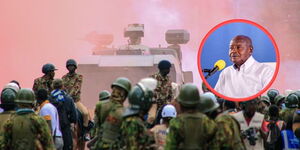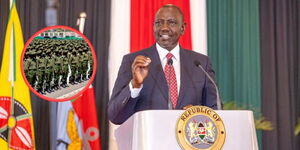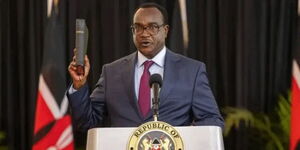It has been revealed that a Ksh2.3 billion money transfer from a South African bank might have been the money that was used to fund the 2019 14-Riverside Drive terror attack in Nairobi.
The amount is reported to have been sent through a wire transfer to a Kenyan bank and was then withdrawn via mobile money services.
Investigations by the agencies in Kenya reveal that part of the money, which was sent on diverse dates, was used to set up operations in different parts of the country, which ultimately led to the bloody attacks that claimed the lives of 21.
One of the leaders of the Riverside attacks, investigations have shown, had registered 70 different mobile money transfer till numbers from which he and his accomplices would withdraw money for the purchasing of weapons, paying for surveillance and even paying rent for where they stayed during the planning of the attack.
An investigating team comprising of an officer from the Directorate of Criminal Investigations (DCI), the Anti-Terror Police Unit (ATPU), a Criminal Intelligence Unit (CIU) officer attached to Safaricom and a prosector from the Office of the Director of Public Prosecution (ODPP) are reportedly in South Africa following the paper trail.
The Standard reports that the investigators' focus in Cape Town will be tracking down the people who sent the money and their motive.
The investigators' focal point is said to be on a Kenyan living in Cape Town whom the police have fingered as being the sender of the money to a Kenyan bank.
The Standard has also revealed that the investigators have identified another Kenyan who has refugee status in Pretoria, South Africa, as part of a terror sleeper cell and a major financier for the Alshabaab.
This refugee is a respected businessman who emigrated to South Africa in search of asylum after members of an Al Shabaab cell composed of his former recruits were gunned down my ATPU officers in January 2016.
Also on the radar is a bank employee who is in a Nairobi court facing terror-related charges.
In February, after the riverside attacks, Kinoti faulted the money transfer operators and banks for failing to flag the transfers that are suspected to have financed the terror attacks.
Research has shown that Alshabaab's financing is drawn from several activities including a vast pool of sponsors and sympathizers, proceeds from charities, piracy, contraband businesses and extortion in the volatile Somalia region.












